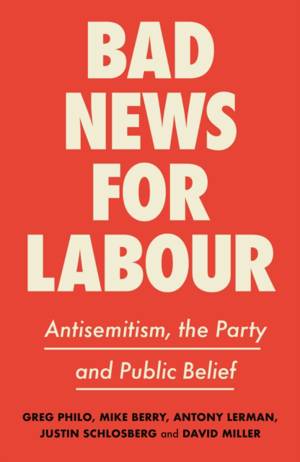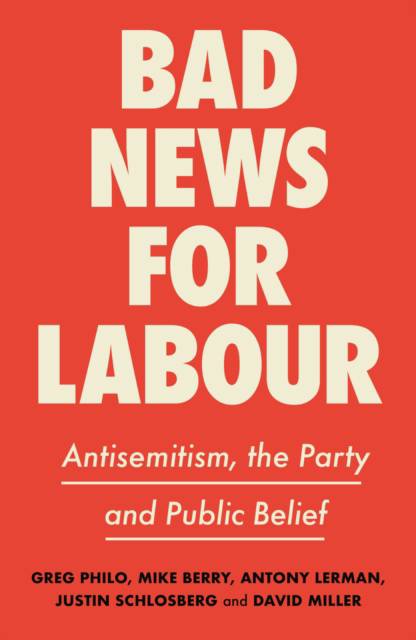
Door een staking bij bpost kan je online bestelling op dit moment iets langer onderweg zijn dan voorzien. Dringend iets nodig? Onze winkels ontvangen jou met open armen!
- Afhalen na 1 uur in een winkel met voorraad
- Gratis thuislevering in België vanaf € 30
- Ruim aanbod met 7 miljoen producten
Door een staking bij bpost kan je online bestelling op dit moment iets langer onderweg zijn dan voorzien. Dringend iets nodig? Onze winkels ontvangen jou met open armen!
- Afhalen na 1 uur in een winkel met voorraad
- Gratis thuislevering in België vanaf € 30
- Ruim aanbod met 7 miljoen producten
Zoeken
Bad News for Labour
Antisemitism, the Party and Public Belief
Greg Philo, David Miller, Mike Berry, Justin Schlosberg, Antony Lerman
Paperback | Engels
€ 25,45
+ 50 punten
Uitvoering
Omschrijving
Jointly written by five leading voices on the topic, this book looks at the contentious issue of antisemitism in the Labour Party today, and sets out ways of addressing the problem while maintaining the integrity of the organisation. The first part of the book includes original material on public beliefs about antisemitism in the Labour Party, and the kinds of problems this poses regarding voting intentions and demoralization of the membership. The writers then investigate the institutional problems and policy decisions that prevented a coherent and well-planned response from the party, and how Labour can rectify this today.*BR**BR*The book progresses to explore in depth the coverage of the issue in mainstream media outlets, and the partial accounts presented to the public. The writers focus on the debates around the IHRA definition, and the accusations made against David Miller which were eventually dismissed and set an important precedent. At the end of the book, Mike Berry provides a helpful chronological account of the arguments surrounding this issue from the beginning of Corbyn's leadership to the present.
Specificaties
Betrokkenen
- Auteur(s):
- Uitgeverij:
Inhoud
- Aantal bladzijden:
- 192
- Taal:
- Engels
Eigenschappen
- Productcode (EAN):
- 9780745340661
- Verschijningsdatum:
- 20/10/2019
- Uitvoering:
- Paperback
- Formaat:
- Trade paperback (VS)
- Afmetingen:
- 127 mm x 196 mm
- Gewicht:
- 249 g

Alleen bij Standaard Boekhandel
+ 50 punten op je klantenkaart van Standaard Boekhandel
Beoordelingen
We publiceren alleen reviews die voldoen aan de voorwaarden voor reviews. Bekijk onze voorwaarden voor reviews.











